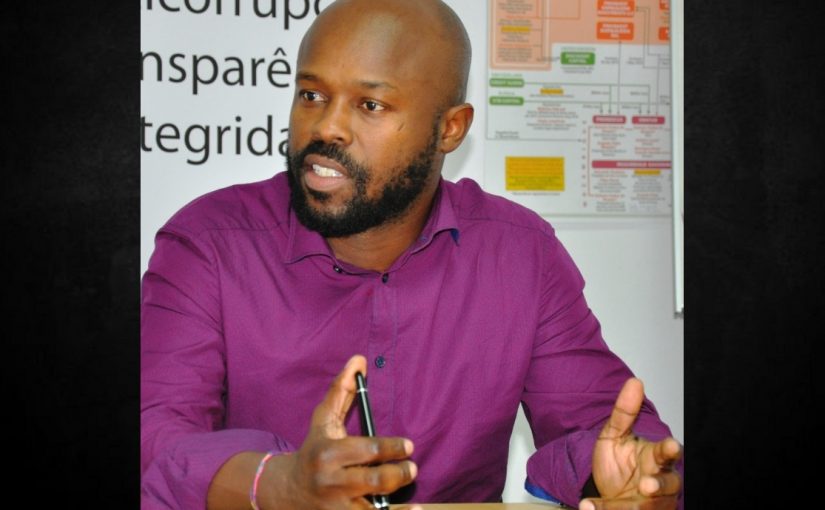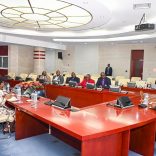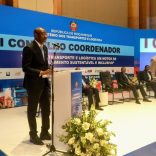Mozambique: NGO says "selective" pardon contravenes constitutional principles
“The governing elite does not think the Cabo Delgado issue is a priority”

File photo: Zambeze
The Centre for Public Integrity says the Mozambican government has failed to support victims of the conflict in Cabo Delgado, a report by the organisation detailing families who have not received support for more than two months.
The Centre for Public Integrity (CIP) on Monday (12.04) presented an analysis of the situation of the internally displaced in Cabo Delgado, victims of the armed attacks in Mozambique’s northern province.
According to the document, the situation of the displaced is dire, with some families not having received support for more than two months.
“In the new resettlement villages, everything is lacking, from shelter, food and household utensils to clothing,” the report says.
In an interview with DW Africa, CIP director Edson Cortez underlines that the Mozambican government is taking no responsibility for the support of the victims of the conflict.
DW Africa: On what specific points is the Mozambican government failing to assist IDPs?
Edson Cortez (EC): One of the main findings of our research is the fact that poor families, in one of the poorest provinces of Mozambique, are solely responsible for supporting family members fleeing the conflict zone, increasing the structural poverty already existing in the province.
Many of the families of those displaced by the conflicts come from coastal districts, and the government of Mozambique, in this resettlement process, is resettling them in districts without access to the sea, giving them plots of land and a portion of land to clear to start farming.
Most of the displaced are made up of families headed by women and with children. They are unable to clear forests and are sometimes unable to rebuild houses, thus being in a situation of vulnerability in relation to the families – which are much less – led by men.
And there is another aspect. Families from coastal districts had fishing as one of their main sources of income. But now, they are simply given land and told: “Try to produce something.” But agriculture was never their main source of income.
DW Africa: Are the failures of the authorities due to negligence or lack of means?
EC: With the discovery of the ‘hidden debts’, the Mozambican state has, since 2016, been in an unprecedented financial crisis. But hidden debts are not like Cyclone Idai or Kenneth, which we cannot control. There are people in Mozambique who were responsible for contracting the ‘hidden debts’, and these people created the conditions for the Mozambican state to stop being credible.
The lack of money that we have today, the financial crisis that the country is going through, is the fault of these people, and they have to answer for their actions. They are also to blame for the situation of the displaced.
Even with a financial crisis that the country is going through, I think there are priorities. When you don’t have a lot, you have to know how to set priorities. Quite simply, the governing elites of this country do not think that the issue of Cabo Delgado is a priority, in terms of the management of displaced persons. They believe that they can pass all the responsibility to the humanitarian agencies of the United Nations, to Caritas, the Catholic Church, taking no responsibility for the state and the government to play a more interventionist role in order to resolve the issue of the displaced and the armed conflict in Cabo Delgado.
DW Africa: You also found inequalities among displaced persons. While those of Makonde ethnicity receive state pensions and help from NGOs or associations, those of the Kimwani or Macuas ethnic groups depend solely on aid from associations and NGOs. Won’t these differences further intensify the struggles among the population?
EC: What we found is that, long before the outbreak of the conflict, in terms of transfers from the state to people in the province of Cabo Delgado, the Makonde ethnic group enjoyed more benefits than the others. And this is not only in the province of Cabo Delgado, but across the whole country. The Makonde ethnic group tends to have greater privileges because it is a small ethnic group and has many former combatants who, by statute, have a lifetime pension that passes from generation to generation. This facilitates the process of re-adaptation to new life on the part of the internally displaced people from this group.
- You may read, download, the full CIP paper, in Portuguese, HERE.
Watch the CIP video below, subtitles in English .












Leave a Reply
Be the First to Comment!
You must be logged in to post a comment.
You must be logged in to post a comment.